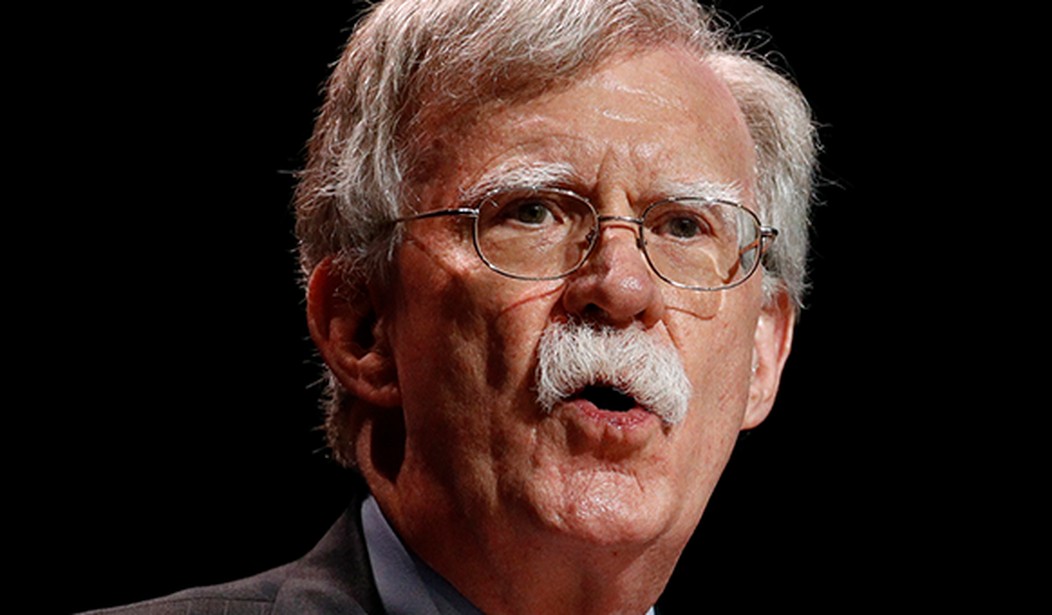Former national security adviser John Bolton shook up the Trump impeachment standoff recently with his announcement that, if subpoenaed, he is "prepared to testify" before a Senate trial. It's still not clear, of course, when or even if a trial might occur, since House Speaker Nancy Pelosi is withholding the articles of impeachment. But if there is a trial, and if the Senate subpoenas Bolton, he won't fight it.
Senate Minority Leader Charles Schumer has demanded the trial include witnesses. Schumer specifically wants the Senate to hear testimony from Bolton, current White House chief of staff Mick Mulvaney, and two other White House officials, Robert Blair and Michael Duffey.
To testify or not to testify? The potential witnesses have a lot of thinking to do. Their situation is unprecedented. There is no guidebook to tell them what to do. So here are some of the factors that Bolton, Mulvaney and other possible witnesses have to weigh:
House vs. Senate
Neither Bolton nor Mulvaney testified before the House impeachment inquiry. Bolton did not receive a subpoena. Mulvaney defied one, at the direction of the White House. Bolton's former deputy, Charles Kupperman, was subpoenaed and asked a court to decide whether he would be required to testify. At that point, House Democrats abruptly withdrew the subpoena. Pelosi, impeachment leader Rep. Adam Schiff, and others claimed that a court fight would take too long, given the urgency that Trump be removed from office as soon as possible. So they dropped the issue.
A judge later declared the matter moot.
Now, the questions surrounding potential testimony remain unanswered. If there was a problem requiring judicial resolution in the House, wouldn't there also be a problem when the Senate seeks testimony?
The answer is yes, but possibly in different ways. First, it seems extremely unlikely that a court would rule that the president's aides have a blanket immunity that would prevent them from even appearing before the Senate. But at the same time it seems likely that some, or perhaps all, of the conversations between Bolton and the president, or Mulvaney and the president, would be covered by executive privilege.
Recommended
It is not clear whether the White House will assert the privilege. But there seems little doubt that the White House, should it seek to bar the president's closest advisers from answering at least some questions, would have some legal options to pursue. It's not clear that they would be winning options, but they could involve some fighting in court as the Senate trial gets underway.
The Roberts Factor
House and Senate impeachment proceedings are entirely different from each other, and one of the biggest differences is the presence in the Senate trial of a representative of the judicial branch of government, in the person of the chief justice of the Supreme Court. The Constitution says the chief justice will "preside" over the Senate trial. On the other hand, the Constitution gives the Senate the "sole power" to try the impeachment. So it is highly unlikely that Chief Justice John Roberts will take charge of the Trump impeachment trial. Of the Bill Clinton trial in 1999, then-Chief Justice William Rehnquist wrote, "I did nothing in particular, and I did it very well." Roberts probably won't do much more.
But he will be there, even if he is just a rubber stamp -- in other words, he will give the imprimatur of the judicial branch to the Senate's actions. So, say the Senate, with the chief justice presiding, voted to issue a subpoena to Bolton, or Mulvaney or anyone else. And say the recipient of the subpoena challenged it in court. How exactly would that work? Federal judges are not in the business of overruling the chief justice of the Supreme Court. If an impeachment dispute ends up in court, Roberts' role could make the decisions of lower court judges -- in other words, the entire federal judiciary -- awkward at best.
Show Up, Yes. Answer Questions, No.
Finally, even if Bolton or Mulvaney or others were subpoenaed, and even if they challenged the subpoena in court, and even if they lost, there is a difference between showing up to testify and actually answering questions. There is no doubt that both men, and perhaps others, could honor a subpoena, appear and then decline to answer a number of questions on the basis of executive privilege.
If executive privilege covers anything, it is a president's deliberations with his chief of staff and his national security adviser on the issue of foreign policy. The privilege is the president's, not Bolton's or Mulvaney's or anyone else's. Bolton's brief statement said that he is "prepared to testify," but it did not get into details of whether he would answer all questions or whether he would follow White House directions, if there were any, or what else he might or might not do.
That will be critical if Bolton, Mulvaney or other witnesses appear before the Senate. Each will be allowed to have a lawyer present, and it seems likely that White House lawyers will be present, too. Those lawyers could raise privilege issues repeatedly, depending on what is asked. Testimony that is billed as dramatic, and even explosive, might be somewhat less exciting in reality.
Bolton's statement is an important development. But there is a lot more to the question of how testimony would work in a Senate impeachment trial. It might not even happen -- at least four Republican senators would have to join minority Democrats' call for witnesses. And even if it does, it could quickly turn into a very complicated affair.
Byron York is chief political correspondent for The Washington Examiner.

























Join the conversation as a VIP Member